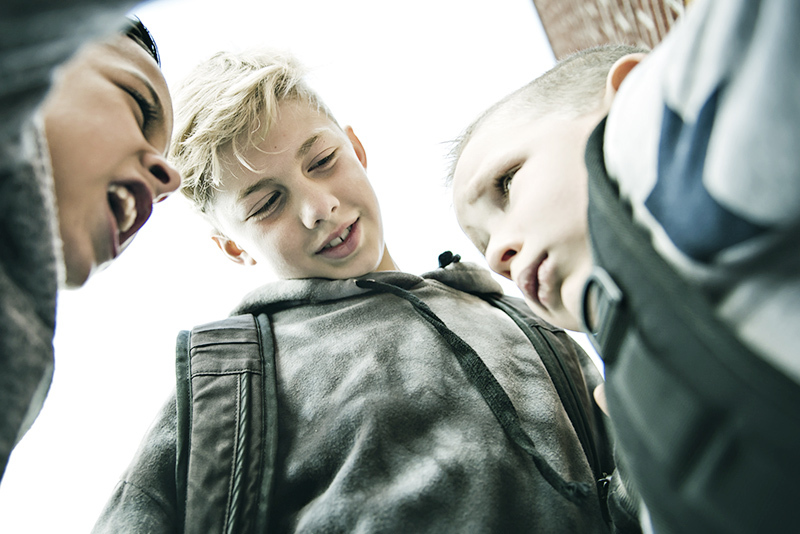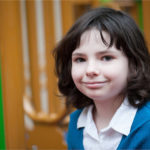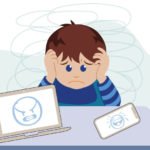When your child is the bully: Tips for parents

It’s bad for children’s health, makes headlines, and defies most attempts to prevent it. Bullying has become the “big tobacco” of the 21st century.
What can a parent do when their child is engaging in behavior that’s condemned by nearly everyone? We talked with Dr. Peter Raffalli, a neurologist and director of the Bullying and Cyberbullying Prevention and Advocacy Collaborative at Boston Children’s Hospital, about kids who bully other kids and what parents can do.
What are parents of bullies up against?
The first challenge for parents is actually believing that their child is bullying other kids. Contrary to popular belief, bullies are often good-looking, popular kids. Adults often consider them role models for other kids. The myth that bullies are rough, insecure thugs can make it very difficult for parents to believe their popular, confident child is bullying others.
What is bullying?
Bullying is a series of mean acts carried out against a single person repeatedly over time. Bullying behavior may include:
- pushing, hitting, tripping
- name-calling, teasing
- spreading rumors, exclusion from a group
- stealing or damaging property
- sending hurtful messages over text or social media
The next challenge parents face is getting their child to talk about their behavior. Often, when confronted, bullies become defiant. They roll their eyes and refuse to answer questions. They may insist that what they’ve been doing is not bullying or that the other kid deserves it.
Understandably, many parents of bullies don’t know what to do to change their child’s behavior. We know that punishing them does not work. Schools can suspend bullies, parents can ground them, but as soon as the punishment ends, the bullying starts again, sometimes worse than it was before. This is why in the bullying clinic, we recommend a therapeutic, rather than punitive, approach to bullying.
What motivates kids to bully other kids?
Some kids bully out of a need to be the top dog at school or in their social circle. They pick on kids they perceive as weak — kids who are shy or ‘different’ or don’t have a lot of friends. No matter what sets their victims apart, kids who bully have more power and use bullying to maintain it.
Sometimes kids who bully have a neurodevelopmental disorder like attention deficit and hyperactivity disorder (ADHD). They have trouble handling frustration and controlling their impulses. Ironically, this can also put them in the sightline of other bullies, and many kids with ADHD are both bullies and bullied by others, in other words, bully-victims.
For other kids, the root of the problem is at home. We see kids in the bullying clinic who witness abuse between parents or are being abused by a parent or sibling. They then repeat this behavior at school, except they’re the ones abusing their peers.
Does it help if bullies apologize to their victims?
This is a popular idea, but not one that is often successful. Kids being bullied are not on equal footing with their aggressor(s). Bringing kids together for mediation is strongly discouraged in bullying situations because it often makes the situation worse, particularly for the victim. Therefore, the mainstay of bullying intervention is separation. An appropriate school official should meet with the individual students separately and in confidence, but not together.
What can parents do if their child is bullying others?
Talk to your child. It’s very important to address bullying behavior with children. Parents need to explain how singling a person out and being mean to them repeatedly over time harms that person. Kids who are bullied have higher anxiety, depression, and a host of health problems that often last well into adulthood.
Teach empathy skills. Many of the bullies we encounter in our clinic lack empathy or refuse to see how their behavior affects other people. Ideally, kids start learning to empathize with others at an early age, but it’s never too late. The good news, their brains continue to develop into their 20s.
Consider neurological evaluation. We’ve had a number of children come to the bullying clinic or general neurology clinic with undiagnosed ADHD. Often, when we treat their underlying condition, their behavior improves remarkably. They’re able to tolerate frustration and control their impulses far better.
Address issues at home. Addressing abuse in the home could help the aggressor by easing a source of significant physical and emotional stress. If a family needs help in this area, Boston Children’s department of Social Work and Family Services can provide supportive counseling and services.
Bullying is not easy to fix. It often grows out of a complex web of relationships, social values and expectations, and medical conditions.
But children who bully others are vulnerable too. As adults, they are at higher risk of psychological and legal problems. To protect both their child and the children being bullied, it’s important for parents to intervene and possibly seek professional help for their child.
Learn more about the Bullying and Cyberbullying Prevention and Advocacy Collaborative.
Related Posts :
-

Samantha's story: 'I was bullied by a classmate'
During the fifth grade when Samantha was 10 years old, she was bullied by a male classmate. She remembers walking ...
-

Cyberbullying in the age of COVID-19: How to protect your kids
Now that so many classrooms across the country have moved totally or partially online, kids of all ages are spending ...
-

Delving into the causes of attention deficits: Childhood adversity, lost sleep, and dopamine
New research on the effects of adversity in childhood ties together stress, sleep loss, and attention deficits later in life. ...
-

Firearm suicides in children and youth: A state-by-state look
At a time when mental health problems are skyrocketing, a new study provides one of the most comprehensive state-by-state accountings ...





